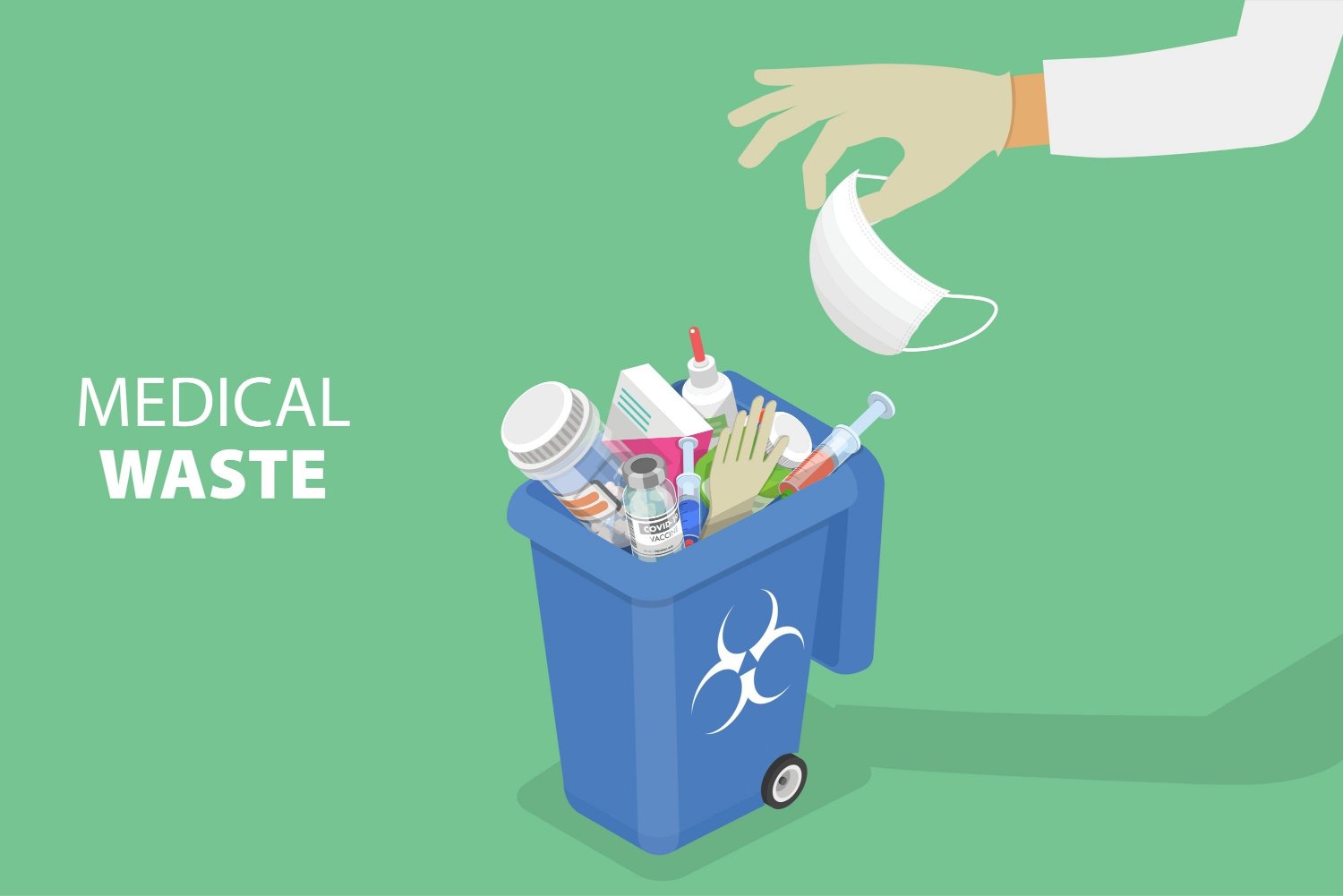Reliable Medical Waste Disposal Services: Guarding Your Center's Health
Reliable Medical Waste Disposal Services: Guarding Your Center's Health
Blog Article
Accountable Solutions: Understanding Medical Waste Disposal Solutions
In the realm of health care, the correct disposal of clinical waste is a critical element that requires cautious consideration. The importance of managing medical waste sensibly exceeds simple compliance with regulations; it directly affects public health and environmental safety and security. As healthcare centers create different types of waste that require specialized handling, recognizing the nuances of medical garbage disposal solutions is paramount. By exploring the ins and outs of this vital process, we can drop light on the ideal techniques, benefits of expert solutions, and lasting remedies readily available.
Value of Proper Medical Garbage Disposal
Correct clinical waste disposal is essential in maintaining a hygienic and secure atmosphere within medical care facilities. In health care settings, various types of waste are generated daily, including transmittable products, sharps, expired medicines, and chemical substances. If not correctly managed, these wastes can pose significant dangers to both medical care workers and the basic public. Inappropriate disposal can cause the spread of infections, injuries from sharps, contamination of water sources, and harm to the setting.

Kinds Of Medical Waste
Within medical care facilities, a varied array of waste materials classified as medical waste is produced, each calling for specific handling and disposal methods. Pathological waste, which consists of tissues, body organs, and body components, requires correct disposal to value the dignity of the dead and stop any kind of biohazards. Comprehending the various kinds of clinical waste is critical for health care facilities to apply efficient waste administration methods and safeguard public health and wellness and the environment.
Laws and Compliance
Medical care facilities should follow rigid regulations pertaining to the handling and disposal of clinical waste to guarantee compliance with lawful demands and protect public health and wellness. These laws are placed in place to avoid the spread of infections, safeguard the environment, and preserve the safety of healthcare employees and the public. Different governing bodies, such as the Environmental Protection Firm (EPA), the Occupational Security and Wellness Management (OSHA), and the Department of Transportation (DOT), have certain standards that health care facilities should comply with.
To follow these laws, health care facilities must correctly segregate, store, transportation, and dispose of different types of medical waste. This includes sharps waste, transmittable waste, contaminated materials, and pharmaceutical waste, each needing certain dealing with procedures. Facilities needs to additionally maintain exact documents of waste generation and disposal to show compliance throughout inspections.
Non-compliance with medical waste laws can lead to extreme penalties, penalties, and damage to the center's reputation. It is important for healthcare centers to remain educated about the newest regulations and implement durable compliance measures to protect public health and wellness and the setting.
Advantages of Professional Disposal Providers
Engaging expert medical waste disposal services provides health care facilities a efficient and reputable remedy for managing harmful products. These solutions utilize experienced professionals who are fluent in managing different types of clinical waste, ensuring proper segregation, transport, disposal, and product packaging. Medical Waste Disposal Services.
Moreover, specialist disposal solutions make use of cutting edge tools and adhere to sector finest practices to reduce ecological effect and minimize the threat of contamination. This not just promotes a much safer work environment for healthcare team but likewise contributes to overall public wellness and safety and security. Additionally, outsourcing clinical waste disposal can bring about set you back savings in the lengthy run by getting rid of the need for in-house administration and disposal systems.
Lasting Practices in Medical Care

One secret lasting technique in health care is waste reduction. By see it here executing approaches to lower unneeded product packaging, single-use items, and overall waste generation, healthcare centers can dramatically reduce the amount of waste sent out to garbage dumps or incineration. Furthermore, recycling programs for materials like paper, glass, and plastic can better minimize the environmental impact of healthcare procedures.

Conclusion
In verdict, correct medical waste disposal is vital in preserving a healthy and secure setting for both healthcare workers and the general public. Comprehending the different sorts of clinical waste, adhering to guidelines and conformity requirements, and utilizing expert disposal solutions are important actions in accountable waste administration. By adopting sustainable practices in healthcare facilities, we can minimize environmental impact and make sure the wellness of all individuals included in the health care market.
As health care facilities generate various types of waste that require specific handling, understanding the nuances of medical waste disposal services is critical.Within medical care centers, a varied variety of waste materials identified as medical waste is this hyperlink produced, each calling for details handling and disposal methods. Recognizing the various types of clinical waste is important for medical care facilities to apply reliable waste monitoring techniques and protect public health and the setting.
By executing techniques to minimize unnecessary product packaging, single-use products, and overall waste generation, health care centers can significantly lower the amount of waste sent out to land fills or incineration. Recognizing the various types of clinical waste, adhering to regulations and compliance standards, and utilizing expert disposal solutions are essential actions in liable waste administration.
Report this page